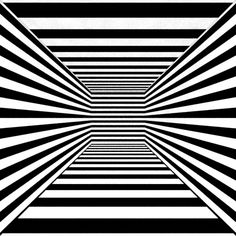|
LITR 4368 Literature of the Future |
Sample answers
for Part 2:
|
 |
Kimberly Berlin
Humans are Space Orcs: A Subgenre of Science Fiction
A recent trend in science fiction writing prompts and short stories has emerged
across the Internet, which is referred to by many names: Humans are Space Orcs,
Earth is Space Australia, Earth is a Death World, and so on. These short story
posts often propose scenarios in which humans explore their own nature and
environment through an alien perspective. In traditional science fiction, aliens
are usually described as ugly and dangerous, in possession of exaggerated
strength or intelligence, and their homeworlds as bizarre and inhospitable. What
makes this modern “Space Orcs” interpretation appealing is the idea that perhaps
we are as weird to them as they are to us.
The naming conventions for this sub-genre require some context to understand.
Anyone familiar with the Lord of the Rings and The Hobbit knows that orcs are a
mutant humanoid race that descended from elves. They are ugly, brutal, and
strong. In a similar way, Australia is stereotyped as being full of fauna that
can and will kill you. “Space Australia” stories deal with alien invasions that
are ill-equipped to survive in our hostile environments. Additionally, as humans
move toward interstellar travel, what are the chances that instead of aliens
being the ugly and dangerous invaders, it turns out to be us?
In The
Time Machine, the Time Traveler finds himself face-to-face with the
descendants of the human race: the Eloi and the Morlocks. The Eloi were
described as beautiful, frail, and childlike. “It came into my head, oddly
enough” he narrates, “that my voice was too harsh and deep for them” (p. 27).
The Time Traveler sees himself superior to the Eloi in both strength and
intelligence. But the Morlocks he described as inhuman and malign (p. 69). They
are predators, and the Time Traveler experiences a primal fear of them.
Encountering these two races allows him to view himself from an outside
perspective: to the Morlocks, he is prey; to the Eloi, he is a strange
entertainment.
One particular class text that stuck out as
pertaining directly to this topic was
They’re Made Out of Meat, which shows two aliens deciding whether or not to
make first contact with Earth after learning that they are meat-based instead of
whatever the aliens are made of. The thing to make note of is that the aliens’
base type is never mentioned
-- are they silicon-based, plant-based, or
something else entirely? But that matters very little, since the focus is on the
strangeness of humanity and shedding an inhuman light on such everyday functions
as talking and thinking. This fascinating and hilarious contradiction is
emphasized by such squeamish descriptions as: “... but what do you think is on
the radio? Meat sounds. You know how when you slap or flap meat, it makes a
noise? They talk by flapping their meat at each other. They can even sing by
squirting air through their meat,” to which the other alien replies, “Omigod,
singing meat. This is altogether too much” (VN 71). While polite society would
never acknowledge the grossness of human bodily functions, an outsider taking a
close look at how humans function would be immediately appalled. This is one of
the more entertaining aspects of “Space Orcs” stories, which I highly enjoy.
This duality of perspective is explored in some
of the “Space Orcs” sample posts reproduced at the end of this document. In a
/rWritingPrompts thread on Reddit, user “Verifiedvenuz” posted a prompt about
aliens beginning an invasion of earth but not being able to follow through with
it because they discovered that humans are really cute. One endearing short
story written in the comments by user “jadefyrexiii” (which is titled Thank You
For the Cookies in the sample posts) ended up mimicking the Time Traveler’s care
when speaking to the Eloi: “‘Yes, earthling,’ the mysterious figure boomed and
whispered all at once, careful not to burst her delicate eardrums with his
natural voice as he had with the last earthling he’d met.” In both instances,
the outsider sees himself as stronger and more dangerous than the native, who is
frail and helpless in comparison. The added detail of bursting eardrums in the
Reddit post reminds us, too, that these newer science fictions rely on modern
scientific/medical knowledge that previous generations might not have had access
to. It may still be soft science, but it is science, nonetheless.
Following that same line of thought, Tumblr user “bogleech” writes, “How do we
know our saliva and skin oils wouldn’t be ultra-corrosive to most other sapient
races? What if we actually have the strongest vocal chords and can paralyze or
kill the inhabitants of other worlds just by screaming at them? What if most
sentient life in the universe turns out to be vegetable-like and lives in fear
of us rare “animal” races who can move so quickly and chew shit up with our
teeth?” This scenario, presenting humans as the dangerous invaders, flips
traditional alien contact stories on their head. Whereas traditionally, authors
use the positive language in terms of space-faring humans as explorers and
scientists, searching for knowledge, “Space Orcs” stories pose the question,
“Are we doing harm to the planets we visit and the people we meet?” They also
remind the reader that in situations like that, we are the aliens invading a
foreign planet!
This same idea of humans as invaders is reflected in
part in Robert Silverberg’s House of
Bones, except that instead of space-faring explorers, the main character
travels back in time to prehistoric Earth and observes humans and a Neanderthal
that are almost as alien to him at first as the Vulcans did to Zephram Cochrane
(Star Trek: First Contact). The
story’s lesson was that the real deciding factor of someone’s humanity is if
they contain compassion: “All the time that I was congratulating them for not
being the savages I had expected them to be, they were wondering how much of a
savage I was. They had tested the
depth of my humanity; and I had passed. And they finally see that I’m civilized
too” (FP 106). The interesting reason this text is included here is that
sometimes we need to examine our own humanity and see if we live up to the best
version of ourselves. It is useful to look at where we came from and what we
might be overlooking, in order to grow as a species. The human-as-alien trope
may seem strange enough, but human-as-alien-observing-humans is even more
strange, and for that reason, I love it.
The evolution of the “Space Orcs” stories stems
from the introduction of fanfiction as available literature. Much of classical
art is, in essence, “fan”-made art of Biblical stories. Similarly, Dante’s
Divine Comedy and Milton’s Paradise Lost can be considered fanfiction of the
Bible. In modern usage, if a fan doesn’t like some aspect of a story, he has the
ability to write his own version and share it on Internet forums. Since no
publisher or editor is involved in sharing these stories, they often come out as
a garbled mess. Because of this unedited, literary free-for-all and the fact
that users can change their screen names at any time, it is sometimes difficult
to track down specific posts. For this reason, a transcription of notable
stories and their source links have been provided at the end of this document.
Often, these stories present civil conversations between humans and aliens.
Topics I have seen range from mankind’s absurd ability to lift a car in a
life-or-death situation (“hysterical strength”) to them pack-bonding with
literally anything -- including Roomba vacuums and feral alien wildlife. Most of
these narratives take place in a future where first contact with aliens has
already been made and space exploration is in its prime. A common theme among
them is why an alien ship should always employ a human (and instructions on how
to care for it), which often focus on the ingenuity and daring of mankind when
faced with a seemingly impossible problem. Humans are thought to be the “hold my
beer” species in these stories -- that is, if a human wants to do something fun
or has a solution to an unsolvable problem, even if it is dangerous and
potentially life-threatening, they will find a way to do it. This exploration
into the way an outsider might view humanity lends itself to a very comforting
position that, while we may not be the only life forms in the universe, we might
still be the weirdest.


